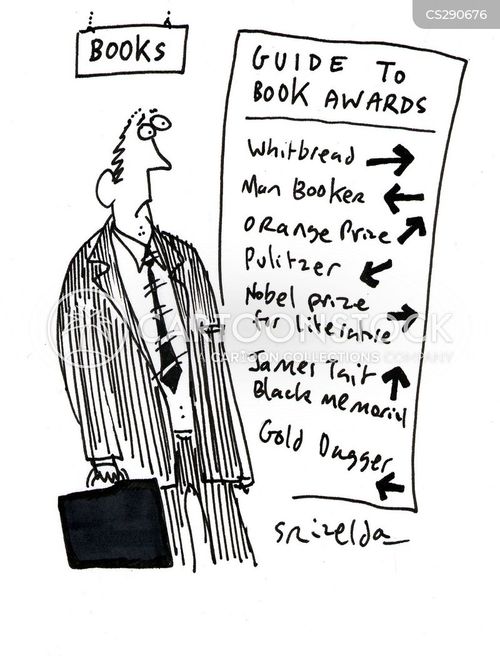Paul Whybrow
Full Member
My jaundiced view of literary prizes is that most of them are marketing exercises to increase the sales of an already successful novel. I understand why this happens, for it's getting the snowball rolling that's the hardest part of attracting attention to one's book, so if it's already gathered momentum why not add a few more layers with prizes?
It's worth remembering, that not all prize-winning books have huge sales. Bestselling novels are usually genre writing. There are prizes within genres, of course, but the high profile awards are somehow seen as conferring quality on the winning book which is literary in style. It's rare for a crime, western, romance, fantasy or sci-fi novel to win a major award.
I've read a few of the main contenders for this year's round of back-slapping by the publishing industry, enjoying them, but it becomes rather tedious when the same titles win lots of prizes. Colson Whitehead's
The Underground Railway has won the Arthur C Clarke prize for science-fiction, a Pulitzer, a National Book Award and he's been longlisted for the Man Booker Prize.
Sebastian Barry's Days Without End won the 2016 Costa Book Award and the 2017 Walter Scott Prize
Francis Spufford won the Costa Book Award for a first novel, the Desmond Elliott Prize and the Ondaatje Prize for his On Golden Hill
I'm not jealous of these authors (not much ), for their entry into literary prize awards happens at the behest of those with vested commercial reasons, so it's hard to take them seriously.
), for their entry into literary prize awards happens at the behest of those with vested commercial reasons, so it's hard to take them seriously.
There aren't many book awards decided by readers' votes. One such is the Books Are My Bag Readers Award which is curated through bookshops. Reader Views runs an annual competition aimed at the independent writer who self-publishes.
The Goodreads Choice Award is supposedly chosen by readers, though users of the site have no say in which books are nominated which has led to allegations of bias.
I've spent most of this year entering writing competitions, which has meant writing fresh material, as I naively self-published my entire catalogue of short stories and poetry online—effectively disqualifying it from 99% of contests. I've enjoyed the challenge of interpreting what the competition organisers are after, and have even felt a slight frisson of anticipation when I see the longlists announced for such awards as the Bridport Prize and the Bath Short Story Award.
It's easy, as an unknown author lurking in the shadows, to look at the fuss surrounding national and international book prizes and think "This is nothing to do with me."
It's all as meaningless as music and acting awards—a bunch of insincere arse kissing run by the merchants selling their wares.
Does anyone agree with me?

It's worth remembering, that not all prize-winning books have huge sales. Bestselling novels are usually genre writing. There are prizes within genres, of course, but the high profile awards are somehow seen as conferring quality on the winning book which is literary in style. It's rare for a crime, western, romance, fantasy or sci-fi novel to win a major award.
I've read a few of the main contenders for this year's round of back-slapping by the publishing industry, enjoying them, but it becomes rather tedious when the same titles win lots of prizes. Colson Whitehead's
The Underground Railway has won the Arthur C Clarke prize for science-fiction, a Pulitzer, a National Book Award and he's been longlisted for the Man Booker Prize.
Sebastian Barry's Days Without End won the 2016 Costa Book Award and the 2017 Walter Scott Prize
Francis Spufford won the Costa Book Award for a first novel, the Desmond Elliott Prize and the Ondaatje Prize for his On Golden Hill
I'm not jealous of these authors (not much
There aren't many book awards decided by readers' votes. One such is the Books Are My Bag Readers Award which is curated through bookshops. Reader Views runs an annual competition aimed at the independent writer who self-publishes.
The Goodreads Choice Award is supposedly chosen by readers, though users of the site have no say in which books are nominated which has led to allegations of bias.
I've spent most of this year entering writing competitions, which has meant writing fresh material, as I naively self-published my entire catalogue of short stories and poetry online—effectively disqualifying it from 99% of contests. I've enjoyed the challenge of interpreting what the competition organisers are after, and have even felt a slight frisson of anticipation when I see the longlists announced for such awards as the Bridport Prize and the Bath Short Story Award.
It's easy, as an unknown author lurking in the shadows, to look at the fuss surrounding national and international book prizes and think "This is nothing to do with me."
It's all as meaningless as music and acting awards—a bunch of insincere arse kissing run by the merchants selling their wares.
Does anyone agree with me?

